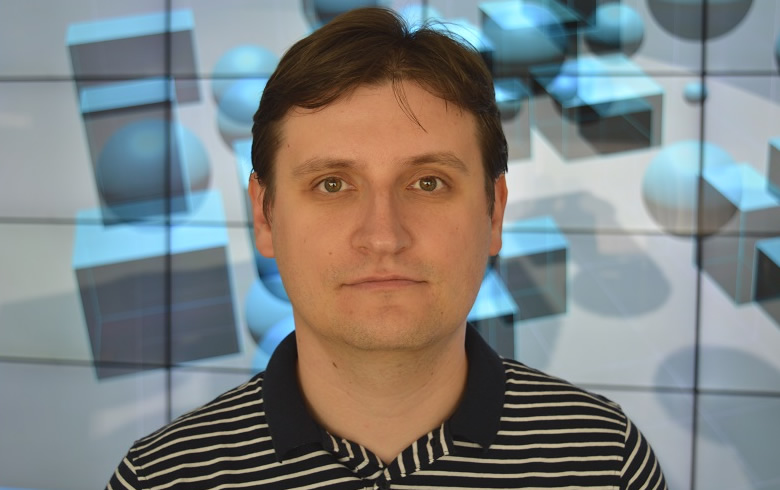Radu-Daniel Vatavu
 I am a Professor of Computer Science (HDR) at the
"Ștefan cel Mare" University of Suceava,
where I conduct research in Human-Computer Interaction (HCI),
Ambient Intelligence (AmI), Augmented and Mixed Reality (AR/MR), and Entertainment Computing.
I direct the Machine Intelligence and Information Visualization Lab (MintViz),
an interdisciplinary research laboratory within the MANSiD Research Center.
I am a Professor of Computer Science (HDR) at the
"Ștefan cel Mare" University of Suceava,
where I conduct research in Human-Computer Interaction (HCI),
Ambient Intelligence (AmI), Augmented and Mixed Reality (AR/MR), and Entertainment Computing.
I direct the Machine Intelligence and Information Visualization Lab (MintViz),
an interdisciplinary research laboratory within the MANSiD Research Center.
While I am broadly interested in Human-Computer Interaction,
I have focused prioritarily on gesture technology for effective interaction
with computing systems, from large public displays to personal mobile
and wearable devices and gadgets. I am also interested in accessible computing,
and my work has often addressed interaction design for young children or people with visual or
motor impairments; see the Research Projects section.
My full Curriculum Vitae is available here
My work has received paper awards at
CHI (2023, 2016, 2015), EICS (2019), ICMI (2024, 2023, 2022, 2012), IEEE Pervasive (2022), IMX (2023, 2021, 2020), ISAmI (2021),
MobileHCI (2018), TVX (2015), W4A (2022),
and has been yearly recognized with
Research Awards (2021-2012) by UEFISCDI,
the Romanian Executive Agency for Funding Higher Education, Research, Development, and Innovation. For my work on "Smart Pockets," I received in 2019 the "Mihai Draganescu" Award of the Romanian Academy, Romania's highest cultural and scientific forum. In 2022, the $P gesture recognizer received the Ten-Year Technical Impact Award from ACM ICMI. I received the 1st Place Blue Sky Award at ICMI 2023 and ICMI 2024 for my vision papers about non-natural interaction and multimodal interaction with AI-embodied modalities, respectively.
I regularly release, with the help of collaborators, software tools, source code, and datasets that are freely available
to download and use for research purposes, such as the $P, $P+, and $Q gesture recognizers,
the Agreement Analysis Toolkit (AGATe) for gesture elicitation studies, the Gesture Heatmaps Toolkit (GHoST),
or the KeyTime and GATO web apps for predicting touch gesture production times; see the Code, Tools, and Datasets section for all the resources.








